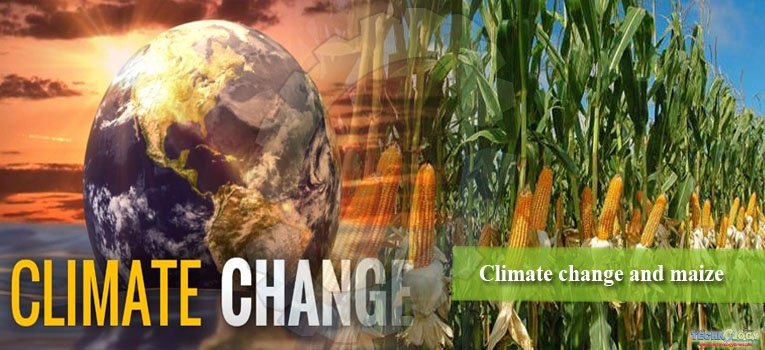Climate will have adverse effect on both developed and underdeveloped countries but developing countries will have to face severe consequences due to their economic dependence on agriculture.

Agriculture is more prone to climate change so it will make developing nations more climate sensitive because of their less technological and financial capabilities.
In Pakistan increase in temperature is expected to be greater than the average of global increase that would result in decline of agricultural productivity. The situation provokes us to meet the challenges of this global change and calls for taking into account the impact assessment of climate change on yield of major crops.
Experts claim that Pakistan is the most affected country from drastic changes in climate and it causes an alarming situation for Pakistan’s agriculture due to water resources scarcity. There is also threat of food insecurity and poverty due to climate change and, there is evidence that these problems may intensify in coming years in the nation.
During the last 40 years Pakistan has witnessed a 0.76°C rise in temperature and due to this impact of climate change Pakistan’s, 22.8 percent area and 49.6 percent population is at stake.
According to investigators, if there is no climatic change then the crop response will be in favor of elevated CO2 level but with the high temperature would affect the yield and increase the risk of agricultural production in many parts of the world.
- Climate change and agriculture
By changing climate there must be change in temperature and precipitation pattern. As high temperature is expected in future years, decline in yield is positively related to this increase. Crop yield might also increase by higher CO2 concentration in atmosphere by changing climatic conditions as it acts as aerial fertilizer.
Crop growth responds to daily weather changes and these changes are likely to yield serious impacts on crop productivity. Climate change and agriculture are related to each other and both are occurring globally. Variability in climate decides the capability of the ecosphere to provide enough food for human and livestock population. Assessment of climate change on agriculture will surely help us to anticipate properly and adapt such farming practices that maximize agricultural output.
- Maize and climatic vulnerability
Due to vulnerable climate productivity of maize (Zea mays L.) would also go down in the future in Punjab province of Pakistan. Like other factors in maize production depends climate has also important impact on yield. Due to extreme nature of weather, crops growing season are being adversely affected and consequently crops yields are decreasing overtime.
There is significant need to calculate the effect of climate change because it is changing rapidly. Researchers are struggling for finding the possible impacts due to projected climate change on the agricultural production. Maize is on third number in the world production of cereals after two major crops wheat and rice and it is also an important grain crop in Pakistan for its uses as food, feed and fodder.
Maize is major cereal after wheat and rice and often referred as “the king of grain crops”. It occupies 5.93 percent of total cropped area and 4.82 percent of the total agricultural production of Pakistan. Total area under maize production in Pakistan is 1117 thousand hectares and production is 4527 thousand tones.
- Maize is so important
High yielding crops such as maize have a lot of importance for the countries like Pakistan where population is increasing day by day and creating shortage of available food supplies. In addition to this, maize is also used as a raw material in leather industry. It is the main source of feed for animals due to high in energy content and low in protein and fiber and its silk can also be used as herbal medicine.
In Pakistan, area under maize cultivation is on third number after wheat and rice and 98 percent of maize is cultivated in Punjab province.
Conclusion
Climate change is global issue and due to its impact on all the sectors it is acquiring a great deal of emphasis from thinkers, researchers and policy makers throughout the world. Due to its biological nature, agriculture is more at risk to climate fluctuations as it is an important input in production process. With the passage of time, changes in climatic conditions are leading us to lesser agriculture productivity to all the cereals.
Due to vulnerable climate productivity of maize would also go down in the future in Punjab province of Pakistan and it could cause serious issues to the food security and poverty rate in the area.
To meet the challenge of high living standard of the poor farmers, maintenance of the future economic growth and to conserve the balance in environment, sustainable development is required.